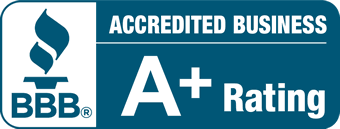Totally Impressed with the service I received. The process was swift and registration completed in a few working days. No wonder the ratings are so high on Google. Keep up the great work.

Incorporating in Ontario is simple with the help of Ontario Business Central. Whether you are creating a named or numbered Ontario Corporation, we make it easy to get your business up and running quickly. It only takes a few simple steps to complete your incorporation using our online form.



The primary difference between Provincial and Federal Incorporation is the name protection.
Provincial incorporation only protects your name in the province that you are registered in.
Federal incorporation protects your name Canada wide!
This is the best in name protection outside of filing for a trade mark

Ontario Professional Incorporations have the same protections available including limited liability and tax advantages however an Ontario Professional Incorporation is designated to those who hold professional certification such as a lawyer, accountant, dentist etc. The advantages of incorporation for professional incorporations remain the same in comparison to a Sole Proprietorship.






How to Incorporate Your Business in Ontario >>>


donald wingell
Totally Impressed with the service I received. The process was swift and registration completed in a few working days. No wonder the ratings are so high on Google. Keep up the great work.


Kelly White
It was very easy to renew my business license online. An agent followed up with me immediately by email when she noticed an address discrepancy on my application. It was easily resolved. Prompt, professional and friendly service.


Gazelle Ghajar
Awesome company to work with. Website is easy to navigate into finding what you need, online forms are simple to fill in, and the request was processed and confirmed within the afternoon! Very impressed with their service and will be using again for my husband's business come January.

The first decision is whether to incorporate a numbered or named incorporation.
Numbered Incorporation
The Province of Ontario will provide a 7 digit number from your submission when you select a numbered corporation with the word Ontario and a chosen legal ending.
Example: 1234567 Ontario Inc.
Often a numbered corporation is selected when
Named Incorporation
This is when you wish to advertise a business name for your corporation.
Example: ABC Holdings Inc.
Often a named corporation is selected when
Choosing a Legal Ending
There are a number of options available for the legal ending of your incorporation including Inc., Incorporated, Ltd., Limited, Corp., or Corporation. You may choose whichever ending suits you or sounds preferable with your business name.
Additional Information Required for Incorporation:
Ontario Business Central guarantees same day service Monday through Friday on Ontario Incorporation orders placed before 3:00 pm. We also have rush services available with a 2 hour turnaround time for a numbered corporation and a 3 hour turnaround time for a named corporation.
Choosing a corporate name for your business can be one of the most difficult things to do. To make it easier for you, we break it down into three primary elements:
Distinctive Element: This is usually the first word identifying something about your business and what you wish to convey.
Examples:
Descriptive Element: This provides what products or services relate to your business. It is much easier for clients to find you when your business name includes what you are providing.
Examples:
Legal Element: Choose whichever legal ending suits you or sounds best with your business name. The options are listed within the website.
A NUANS report is a mandatory 7 page report required when incorporated within most jurisdictions in Canada. It is very important that you order the NUANS report specific to the jurisdiction within the Province or Territory where incorporating. The report provides a listing of small businesses, corporations, and trademarks that are similar to the name you wish to incorporate.
A pre-search is commonly completed. This is a search of the proposed business name to see if it is available prior to ordering the 7 page NUANS report. If a name is not available, additional names may be provided.
The Ontario pre-search and NUANS report are preselected for you within our incorporation packages.
The NUANS report is provided to the Provincial examiner with the Ministry of Government Services for review and acceptance along with the incorporation documents.
The Initial Notice is a single mandatory filing that is due within 60 days after the completion of the incorporation. This document filing verifies the details of the incorporation along with the provided officer positions for the individuals within the corporation. Most commonly held positions include president, secretary, and treasurer but there are many more positions available. This is an optional item within our incorporation packages, but it is highly recommended. If the Initial Notice is not filed, the Province will cancel the corporation for non-compliance.
Officers are high-level executives appointed by the board of directors to manage the day-to-day operations of the corporation. Common officer roles include:
When a corporation has only one class of shares, typically referred to as "common shares," all shareholders have the same rights and privileges. Here are the characteristics:
When a corporation has two or more classes of shares, it means there are different types of shares, each with its own set of rights and privileges. Common types include "common shares" and "preferred shares."
Companies might choose to have multiple classes of shares for various reasons:
Explanation: Once a corporation is formed, many jurisdictions require the filing of an Initial Notice. This document provides key details about the new corporation, such as its name, registered address, directors, officers, and sometimes even its primary business activities.
Explanation: Corporations are obligated to report any significant changes to the information previously submitted in the Initial Notice. This can include changes in directors, officers, registered office addresses, or the nature of the business and is due within 15 days of any change. Typically, a Notice of Change form is used to update this information, ensuring that the official records are current and accurate.
Explanation: The Annual Return is a mandatory document that corporations must submit each year. It's a way to update or confirm the information the government has about your corporation. Filing this return often involves providing details about the corporation's directors, officers, share structure, and financial data. Not submitting your annual return can lead to penalties and, in some cases, dissolution of the corporation. The Annual Return is typically required within six (6) months of your fiscal year end.
Explanation: Once a corporation is established, it will usually need to set up various tax accounts, depending on its business activities and location. This might include federal and provincial corporate income tax accounts, sales tax accounts (like GST/HST in Canada), payroll accounts, and more. The corporation will need to ensure it complies with all tax obligations, from collecting taxes where required to submitting tax returns on time.
Explanation: A minute book is a binder (or digital equivalent) where corporations maintain essential corporate records. It typically contains the Articles of Incorporation, by-laws, minutes of directors' and shareholders' meetings, share certificates, ledgers, and any other important corporate documents. Keeping a well-organized minute book is not just best practice—it's often a legal requirement. It provides a clear record of corporate decisions and helps maintain the corporation's limited liability status.
Explanation: After incorporation, shares need to be issued to shareholders, which is the method by which ownership of the corporation is determined. This process involves deciding on the number of shares to distribute, the type/class of shares, and their value. Share certificates are then typically provided to shareholders as a record of their ownership. It's vital to maintain an accurate ledger of share distributions and to ensure that all shares are issued in accordance with the corporation's Articles of Incorporation and any shareholder agreements
The minute book is an organizational tool for your new corporation. It provides the by-laws, share certificates, and tabs for officers, directors, and shareholders of the corporation along with other supporting documents. We recommend it if you have partners. The minute book should be updated each time you have a change within your corporation.
The Mark Maker Seal is an embossed impression with your corporate name and jurisdiction where you have incorporated. The seal is commonly used when you are doing business transactions. The corporate supplies are listed as an option within our incorporation packages.
These accounts can be set up for free by going directly to the government contacts and websites. We provide you with each of these contacts along with many more to assist you as you begin your business.
HST (harmonized sales tax), formerly GST and PST, is mandatory only if your corporation grosses $30,000.00 or more within the same fiscal year. Until this income is met, HST is optional as is the set up of an HST account. The current tax rate is 13% within the Province of Ontario. When you operate a business and have an HST account, the HST you pay out for business expenses is subtracted from the HST you take in from clients and customers. Each quarter, a tax filing is required to Revenue Canada providing the difference between the two.
Sometimes, it may be beneficial to wait to set up an HST account to offer clients and customers a no tax incentive for your business. Other times, where you have a large number of expenses to set up your business, it may be beneficial to set up an HST account right away.
WSIB (workplace safety and insurance board) has been established by the Province of Ontario to protect employees (workers) in the event of injury while on the job. There is also the opportunity for business owners to consider optional insurance available through this program. It is best to contact WSIB directly, providing your specific business practices to see whether or not your employees are required to be covered by the WSIB program, not only to protect your employees but to protect yourself in the event of an injury.
Payroll is to be set up whenever you begin employing individuals within your business.
A tradename is a Master Business Licence (small business) operating under an incorporated company. This may be an option for you if you wish to operate a secondary business name or the same name as your corporate name without the legal ending for such things as signage.
Examples:
ABC Holdings Inc. carrying on business as DE Restaurant (operating a secondary business name)
ABC Holdings Inc. carrying on business as ABC Holdings (for signage, advertising where the corporate legal ending of Inc. does not appear)
1234567 Ontario Inc. carrying on business as ABC Holdings (operating name under corporation)
Important Things to Know About Tradenames:
Tradenames can be added within your incorporation package with us.
BN Number
Once your Ontario Incorporation has been completed, you will receive the BN number from Revenue Canada to your corporate head office address. The BN number is similar to your social insurance number as an individual. The BN number is used for all tax accounts with the Federal government including corporate tax, HST, and payroll. Once you have received the BN number, you may go to Revenue Canada's website (we will provide you all of the details) and set up HST and payroll accounts when applicable.
After Setting Up a Completed Incorporation:
Ontario Business Central provides a free bizguide with each completed incorporation. This guide provides relevant information on taxation, organizing your business, dealing with employees, associations, Canadian business support services, and so much more.
Other services offered by Ontario Business Central include Nuans Search and Report and Online Company Incorporation services and more.

